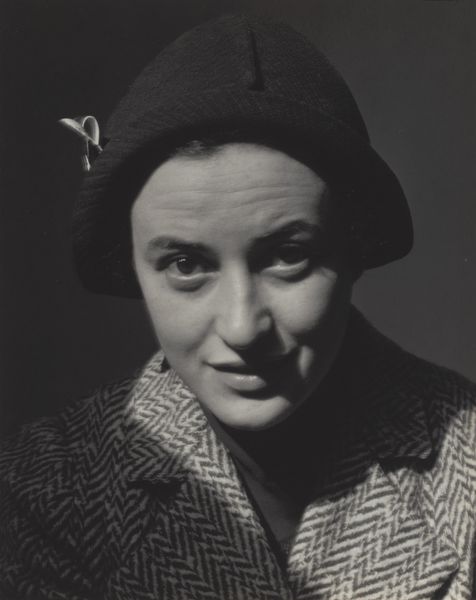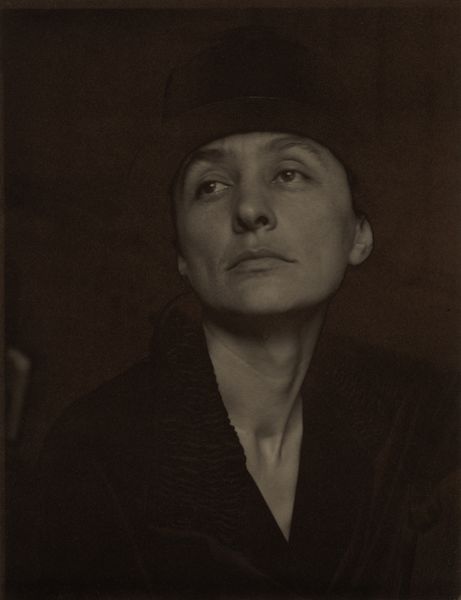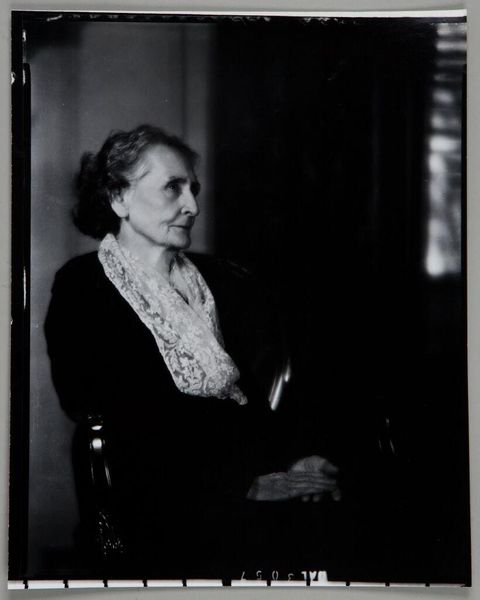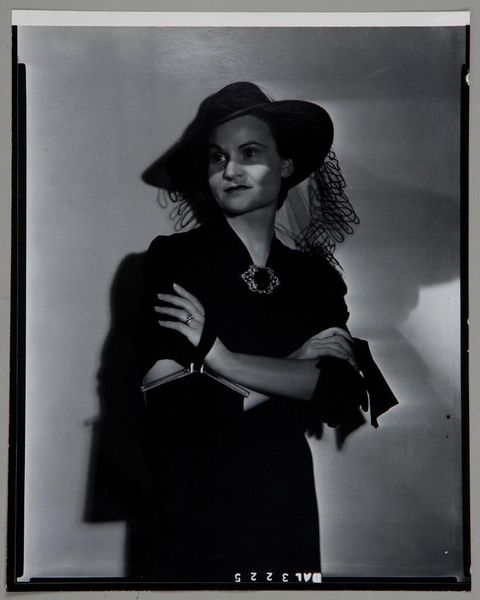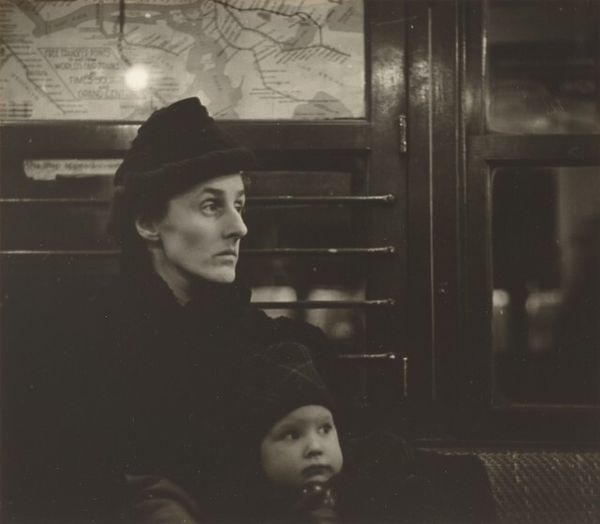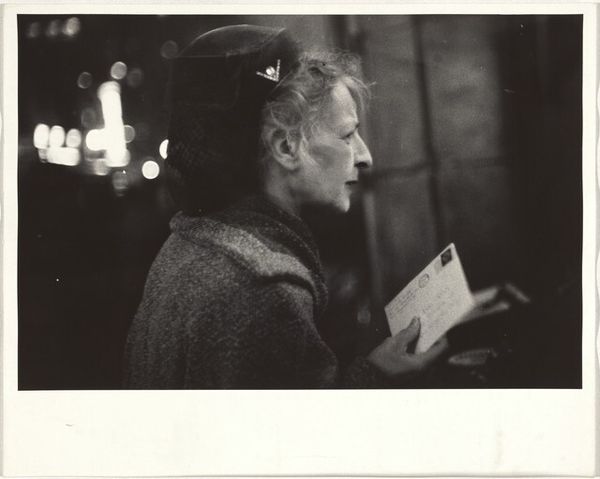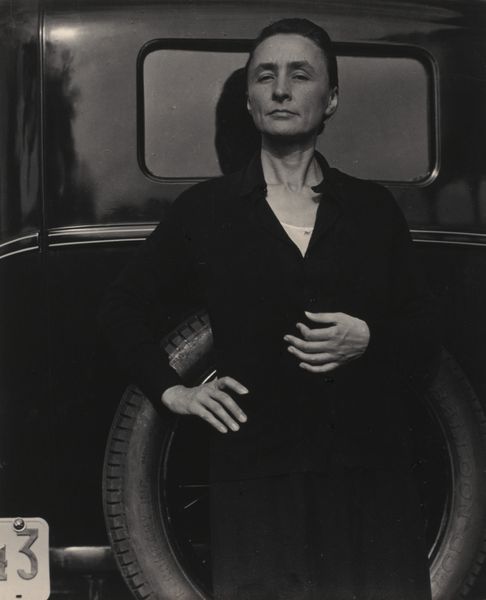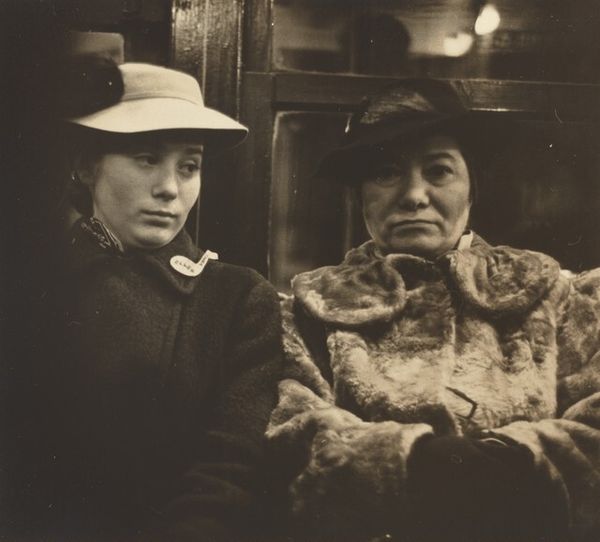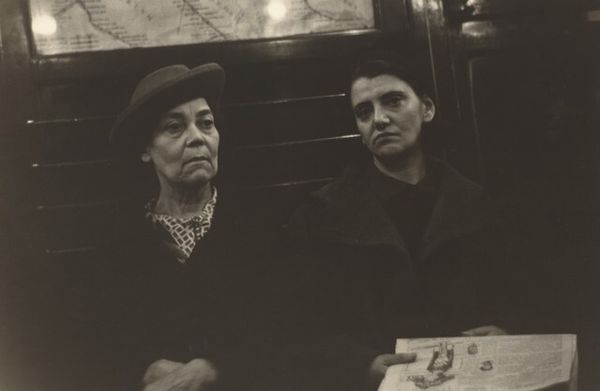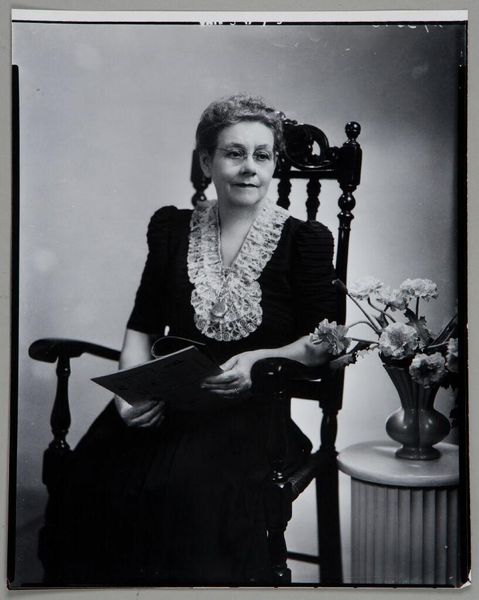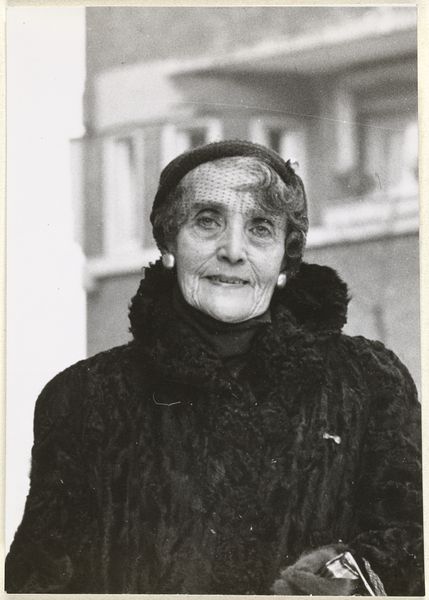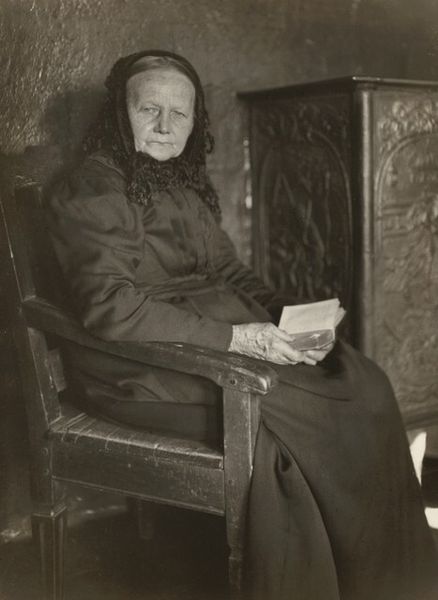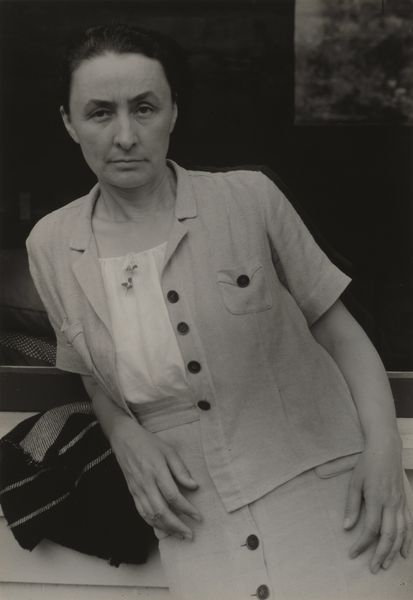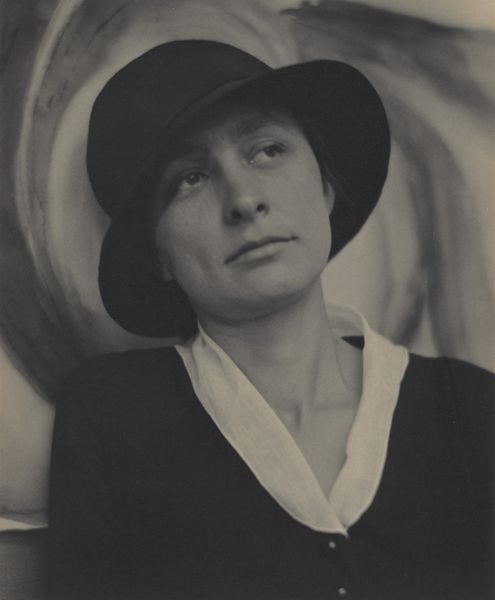
photography, gelatin-silver-print
#
portrait
#
street-photography
#
photography
#
single portrait
#
gelatin-silver-print
#
monochrome photography
#
ashcan-school
#
portrait photography
#
realism
#
monochrome
Dimensions: sheet (trimmed to image): 20.9 x 19.1 cm (8 1/4 x 7 1/2 in.) support: 21.5 x 19 cm (8 7/16 x 7 1/2 in.)
Copyright: National Gallery of Art: CC0 1.0
Editor: This is Walker Evans' "Subway Portrait" from 1941, a gelatin-silver print. The woman's gaze is so intense and averted, it evokes such a sense of melancholy. What historical narratives do you see embedded in this seemingly simple portrait? Curator: It’s compelling precisely because it isn't simple, is it? Evans captured people unaware, using a hidden camera. It speaks volumes about photographic ethics, doesn't it? He’s documenting a social class navigating a period defined by global conflict, as the newspaper headline hints at, the Kennedy 'Aid Britain Bill'. It makes you consider the subject's interior life in that specific socio-political moment, wouldn’t you say? Editor: Absolutely, but knowing the photos were taken surreptitiously adds another layer. How did the context of Depression-era anxieties influence Evans' choice to capture these unguarded moments, potentially exploiting his subjects for the sake of art? Curator: That’s the critical question, isn’t it? His work, part of the Ashcan School, reflects a turn toward gritty urban realities. Yet, unlike purely documentary photography, Evans elevated the everyday to art, creating images infused with inherent tensions regarding representation and social observation. Do you think these ethical considerations diminish the image's historical value, or enrich our understanding? Editor: I think they enrich our understanding. The controversy pushes us to analyze not only the subject but also the photographer and, importantly, the viewers’ roles in perpetuating specific narratives. It shows we can understand both artistic license and social responsibility. Curator: Precisely. The legacy of this work resides in these conversations around power, representation, and the politics inherent within seemingly candid images. Thank you for helping contextualize what Walker Evans does, and what we as an audience bring to it. Editor: Thank you for prompting such a deep look into this beautiful but problematic image!
Comments
No comments
Be the first to comment and join the conversation on the ultimate creative platform.
